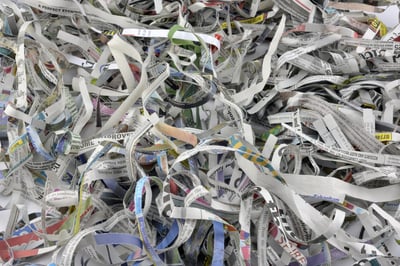You May Not Have To Throw Away the Towel
Most people are familiar with compost, especially anyone who maintains a garden. Did you know that farmers and landscapers also use compost to improve the properties of the soil? Compost has many benefits and can help communities and businesses achieve their sustainability and zero waste goals by providing a great alternative to landfills. In addition to reducing your landfill footprint, compost can enrich soil, reduce erosion, improve drought tolerance, and help reduce the generation of greenhouse gases, all while growing healthier plants! 
A composting program at your workplace provides the opportunity for staff to become engaged in waste reduction efforts while providing many benefits for the workplace. The single most effective way to increase composting is to plan ahead. The U.S. Compost Council, along with assistance from Keep America Beautiful and WAXIE’s vendor partner Kimberly-Clark have created a guide to creating a workplace composting program which provides information on collecting organic materials in the workplace effectively and efficiently.
The terms “organic material” or “organics” are often used interchangeably and may remind you of the classification you see on produce or other products in the grocery store. However, they also refer to the feedstock for composting and refer to something that grew or was derived from something that grew. Fruits, vegetables, plants, grains, pasta, bread, meat, fish, and dairy are all classified as organics. The recycling of organic materials to create compost is central to achieving healthy soils, clean water and a sustainable society.
Many paper items like paper towels, napkins or coffee filters are also considered organic material because they were derived from trees. Manufactured items from an organic base can also be classified as organic material. These include some types of utensils, plates, cups, bowls and bags made from corn and potato starch, or bagasse which is a byproduct of harvesting sugarcane.
Did you know that according to EPA study in 2012, paper product waste made up over 27% of total solid waste?
Did you know that the U.S. Compost Council had determined that most paper products may be safely and beneficially used as compost feedstock?
You may need to check with your local hauler to determine if composting paper towel waste is a viable solution for you – and please continue to look to WAXIE for ongoing information on this potential solution to paper towel waste diversion. In the meantime, please reference the following links for more helpful information about composting paper towels:
Please download a copy of the Guide to Workplace Composting here: https://www.kab.org/sites/default/files/A_Guide_to_Workplace_Composting_1.pdf
Please download a copy of the University of Alberta paper towel composting case study here: http://www.kcprofessional.com/media/107094927/p14-124_uofalberta_case_study.pdf
Please download a copy of the Kimberly-Clark composting overview here: http://www.kcprofessional.com/media/170507705/Kimberly-Clark-Professional-Composting.PDF


